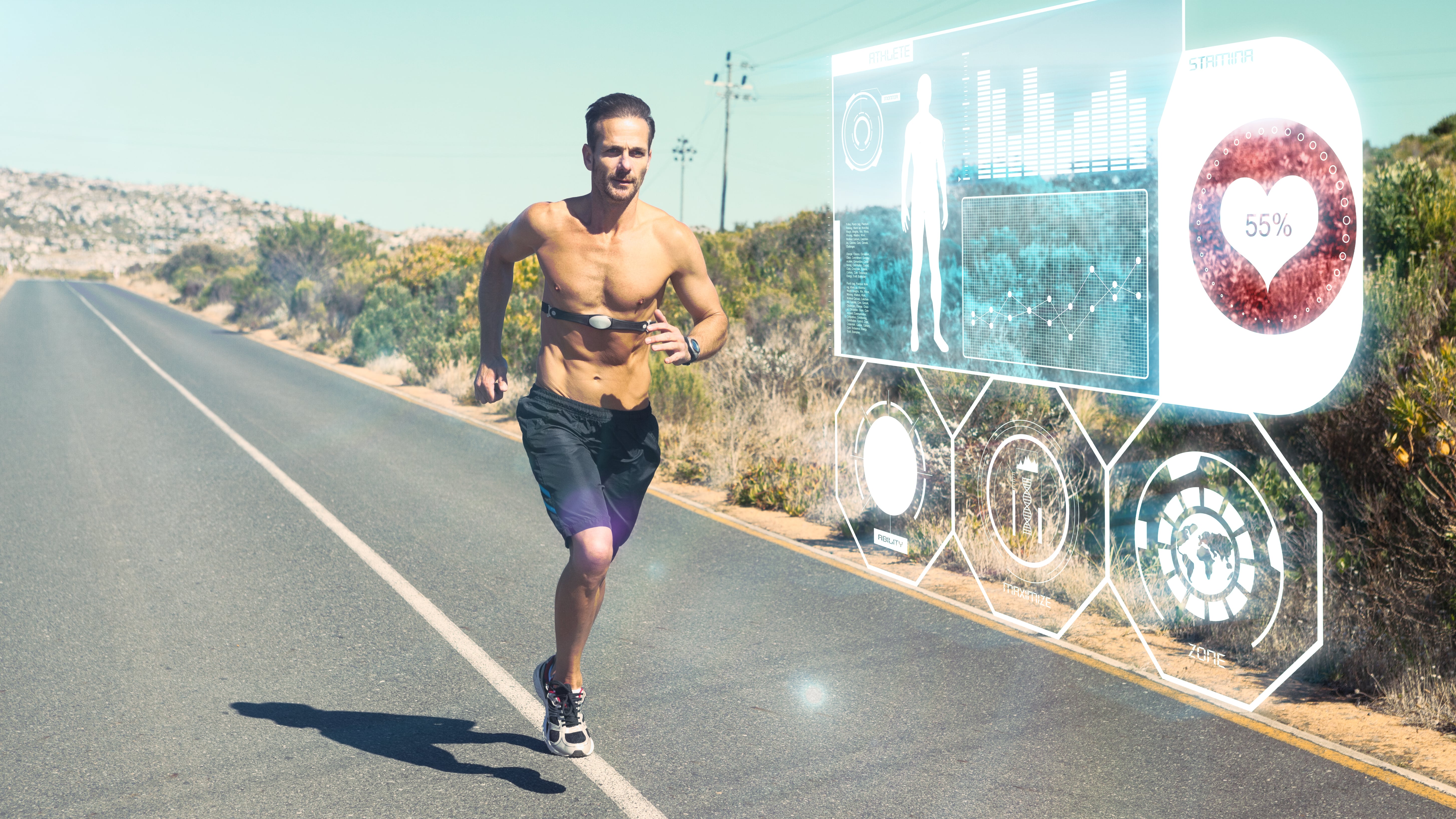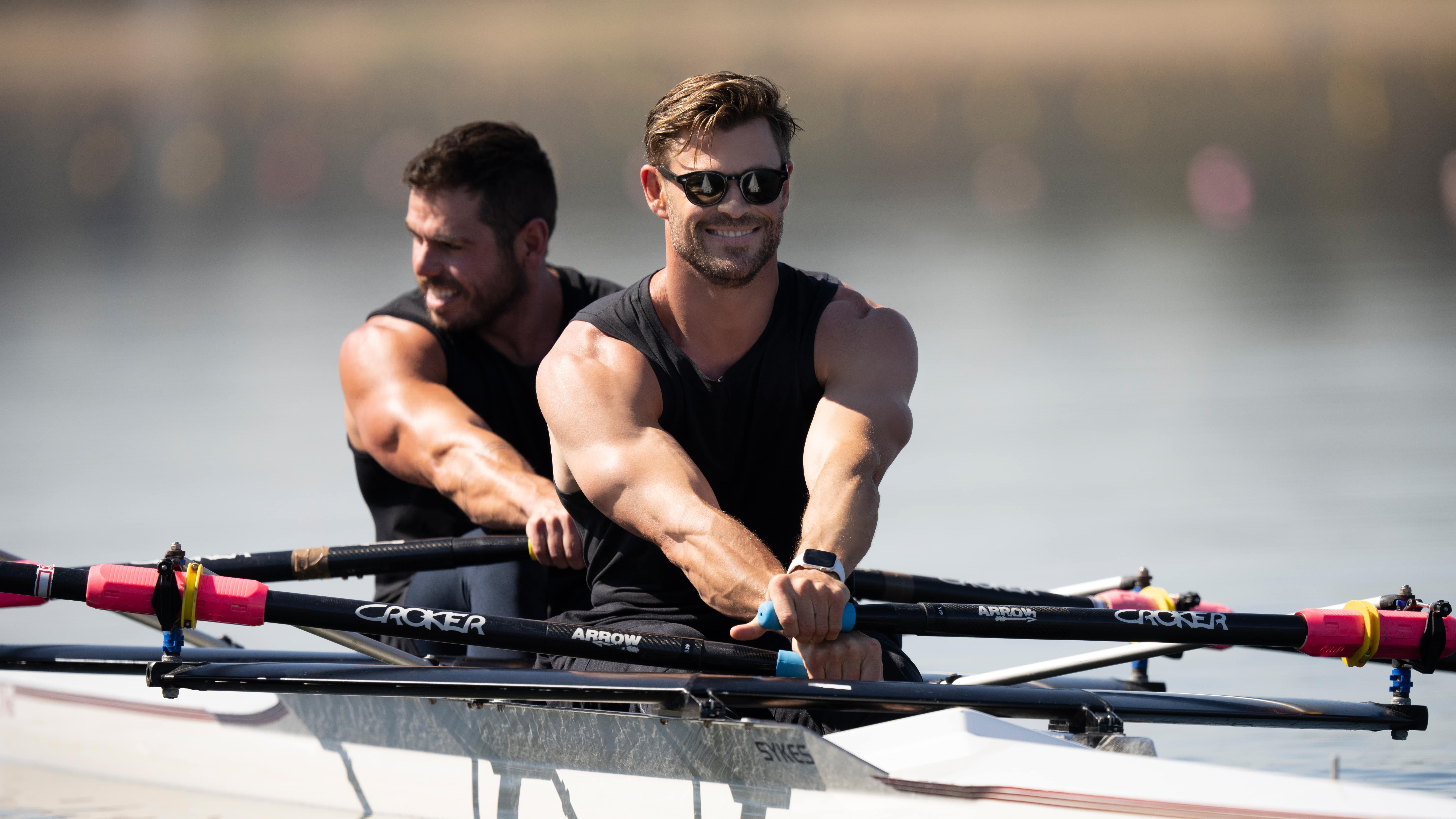
When it comes to exercise, nobody wants to be seen as having all the gear but no idea. That said, owning any one of the best fitness trackers, best smartwatches or, for the most accurate measurements, heart rate monitors really can help to improve your bodily health and fitness in the long-term.
Ultra-marathon swimmer Ross Edgely, whose previous stunts involve completing a 157-day, 1,792-mile swim around Great Britain, is no stranger to useful fitness tech. In a recent interview with TechRadar to promote new Disney Plus series Limitless with Chris Hemsworth, we asked the chart-topping author which piece of kit he finds most helpful when exercising on a daily basis.
Edgley says you don't have to go hard to start your fitness journey, advocating for "Zone 2" aerobic training like a slow and steady jog, swim or cycle. He recommends using a heart rate monitor as a measure of intensity, to make sure you're not overdoing it.
“I think one of the best things [you can buy] is any form of heart rate monitor, especially when it comes to Zone 2 [aerobic exercise],” Edgley tells us. “It’s so counter-intuitive to a lot of athletes – anyone who’s training, they just want to kill themselves off, as if it’s not been a good session unless you’re on the floor sweating, wondering what happened. The idea of Zone 2 fitness is to build up mitochondrial efficiency so your heart rate never goes above that 120, 130 beats per minute mark. Using your heart rate as a measure of intensity is so important.”
Edgley continues: “There was a study – a metastudy, a study of thousands of studies – to determine what the best form of cardiovascular activity is in any given sport. And in the end, they found that there isn’t one. However, that polarized training approach, where you spend 80% of your time training Zone 2 aerobic and 20% training anaerobic during those balls-to-the-wall lactic sessions – that’s so important.”

To be clear: strapping a heart rate monitor to your wrist won’t automatically turn you into the He-Man of exercise. But as Edgley explains, the idea of these devices is to make you more aware of how your chosen workout is affecting your body’s cardiovascular performance.
“It’s really interesting that so many people, when they’re training blind without a heart rate monitor, they’re in that weird in-between bit where their bodies are saying: ‘What do you want us to physiologically adapt to?’ It’s not aerobic or anaerobic. That’s one of the biggest things [that a heart rate monitor can improve].”
Get daily insight, inspiration and deals in your inbox
Sign up for breaking news, reviews, opinion, top tech deals, and more.
Heart rate monitors tend to do the job of monitoring your heart rate (surprise!) better than expensive smartwatches, too. The latter use optical sensors which can easily be affected by sweat, hair and movement, while dedicated heart rate monitors employ electrodes that detect electrical signals from your heart.
So, if you were lucky enough to receive a swanky new heart rate monitor over Christmas: congratulations! Now get out there and run off that turkey. For those who haven’t yet dipped their toes into this particular branch of fitness tech, fear not. Our guide to the best heart rate monitors features options for budgets little and large – and you’ll find a roundup of today’s best heart rate monitor deals, too.
For more of adventurer Ross Edgley’s fitness-related insights, check out our report on Chris Hemsworth’s utterly ridiculous training regime for Extraction 2. We’ll also be sharing more of Edgley’s expert advice throughout TechRadar's Get Fit For '23 week, which begins on January 2, 2023.

Axel is TechRadar's UK-based Phones Editor, reporting on everything from the latest Apple developments to newest AI breakthroughs as part of the site's Mobile Computing vertical. Having previously written for publications including Esquire and FourFourTwo, Axel is well-versed in the applications of technology beyond the desktop, and his coverage extends from general reporting and analysis to in-depth interviews and opinion. Axel studied for a degree in English Literature at the University of Warwick before joining TechRadar in 2020, where he then earned an NCTJ qualification as part of the company’s inaugural digital training scheme.